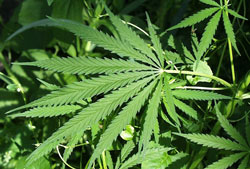*This course has been retired. There is no replacement course at this time. Please click here to view the current ATrain course listings.
Authors:
Mary Lynn Mathre, RN, MSN, CARN
Sara E. Wilson, BA
Contact hours: 5
AOTA CEUs: 0.5
Expiration date: July 1, 2024
Course price: $29
Course Summary
Reviews the medicinal use of cannabis, introduces the endocannabinoid system, addresses myths, outlines therapeutic indications, and spells out dosages and routes of administration. This course addresses public policy and legal issues as use of medicinal cannabis becomes legal in a growing number of states throughout the United States.
Target Audience
Nurses, nurse practitioners, advanced practice nurses, physical therapists, physical therapy assistants, occupational therapists and occupational therapy assistants*.
*If you are an OT or OTA, you may need the following information for relicensure:
![]() ATrain Education is an AOTA Approved Provider of professional development. Approved provider #6558. This distance learning-independent is offered at 0.5 CEUs, introductory, Foundational Knowledge. The assignment of AOTA CEUs does not imply endorsement of specific course content, products, or clinical procedures by AOTA.
ATrain Education is an AOTA Approved Provider of professional development. Approved provider #6558. This distance learning-independent is offered at 0.5 CEUs, introductory, Foundational Knowledge. The assignment of AOTA CEUs does not imply endorsement of specific course content, products, or clinical procedures by AOTA.
Criteria for Successful Completion
Study the course material, achieve a score of 80% or higher on the post test (the post test can be repeated if a learner scores less than 80%), complete the course evaluation, and pay where required. No partial credit will be awarded.
Accreditation
To find specific accreditations or approvals, click here.
Conflict of Interest/Commercial Support Disclosure
The planners and authors of this learning activity have declared no conflicts of interest, vested interest, or financial relationship that may influence the content of this activity. All information is provided fairly and without bias.
ATrain Education, Inc. received no outside financial or commercial support in the preparation, presentation or implementation of this learning activity and has no affiliation with any company whose products or services are mentioned in this activity.
Course Objectives
When you finish this course you will be able to*:
- Summarize 3 myths and 3 truths about cannabis as a medication.
- Identify phytocannabinoids, and contrast Marinol with cannabis occurring in nature.
- Explain the endocannabinoid system and its implications for the use of cannabis as medication.
- Comment on 3 generally supposed health risks related to cannabis as medication.
- State 3 therapeutic effects and indications for cannabis.
- Discuss 4 common routes of administration of cannabis.
- Describe 4 elements of patient and family education regarding cannabis.
- Debate 3 public policy and legal issues associated with the medicinal use of cannabis.
- Describe 3 special populations who may experience health risks related to cannabis.
*Please note: attainment of course objectives will be assessed in the course evaluation.

